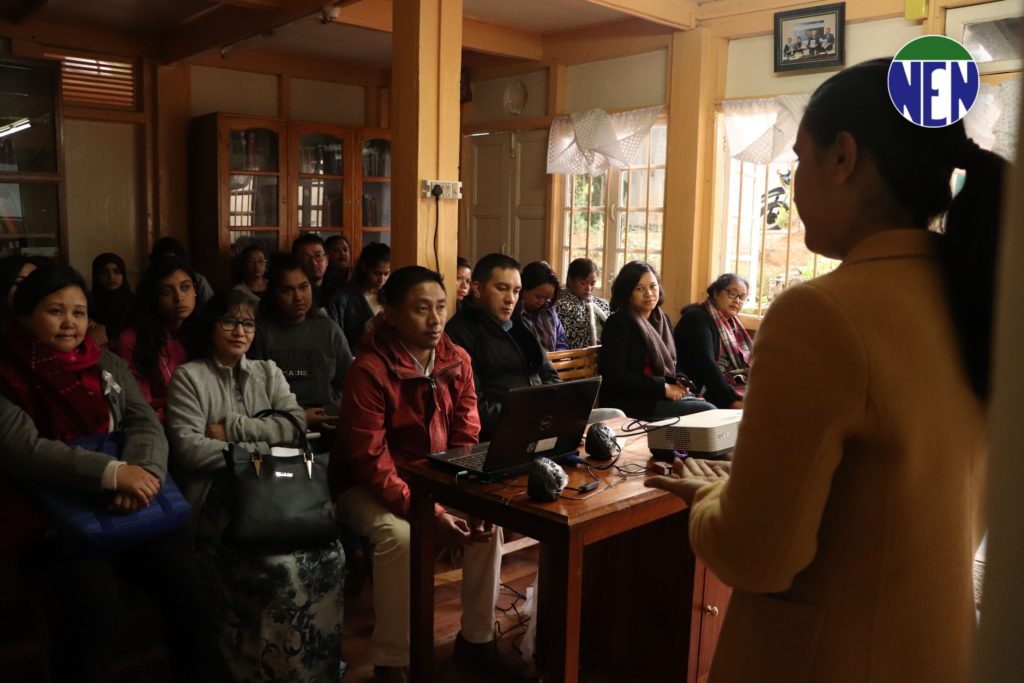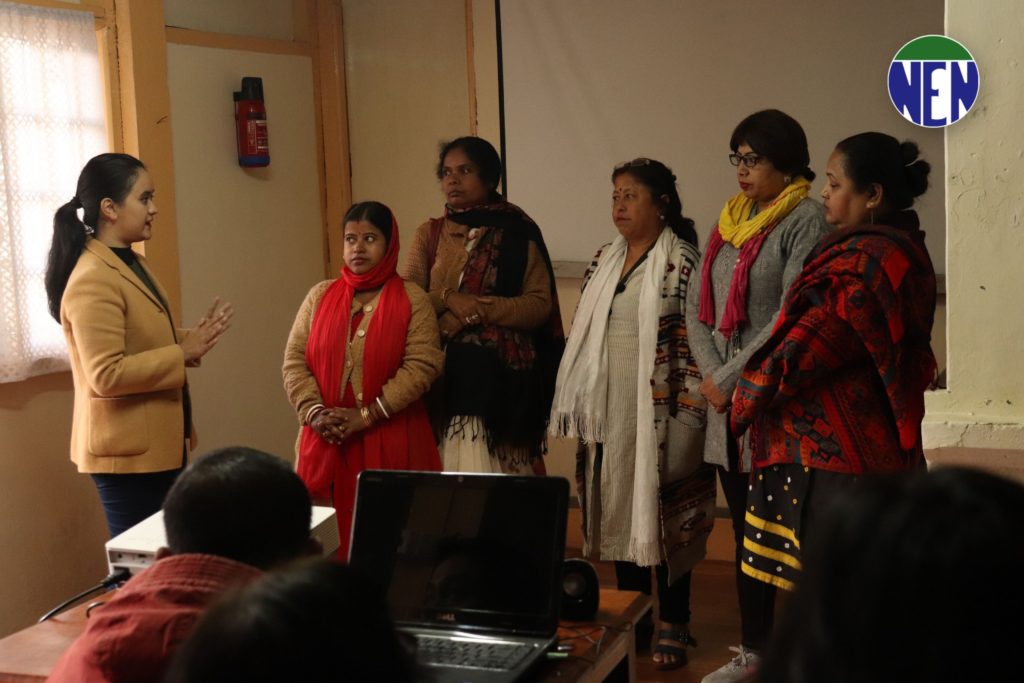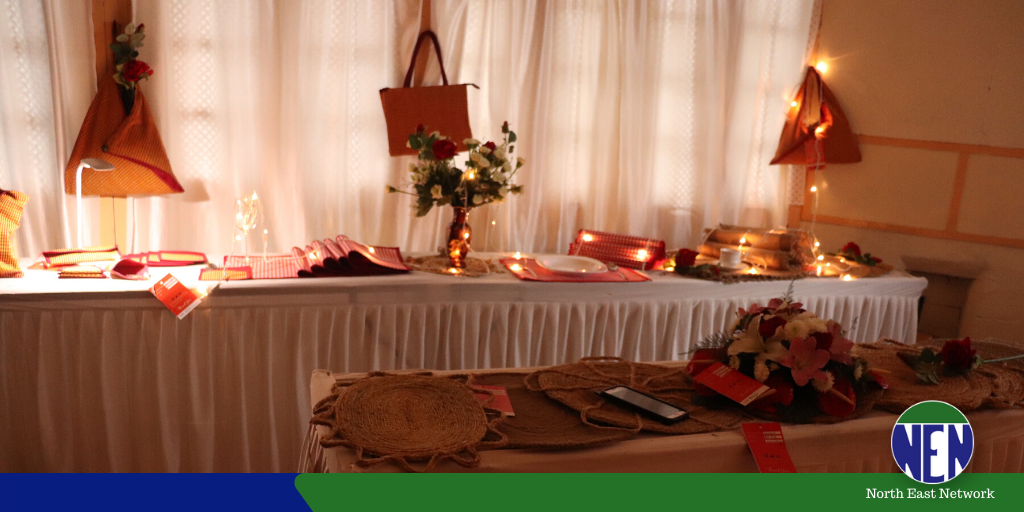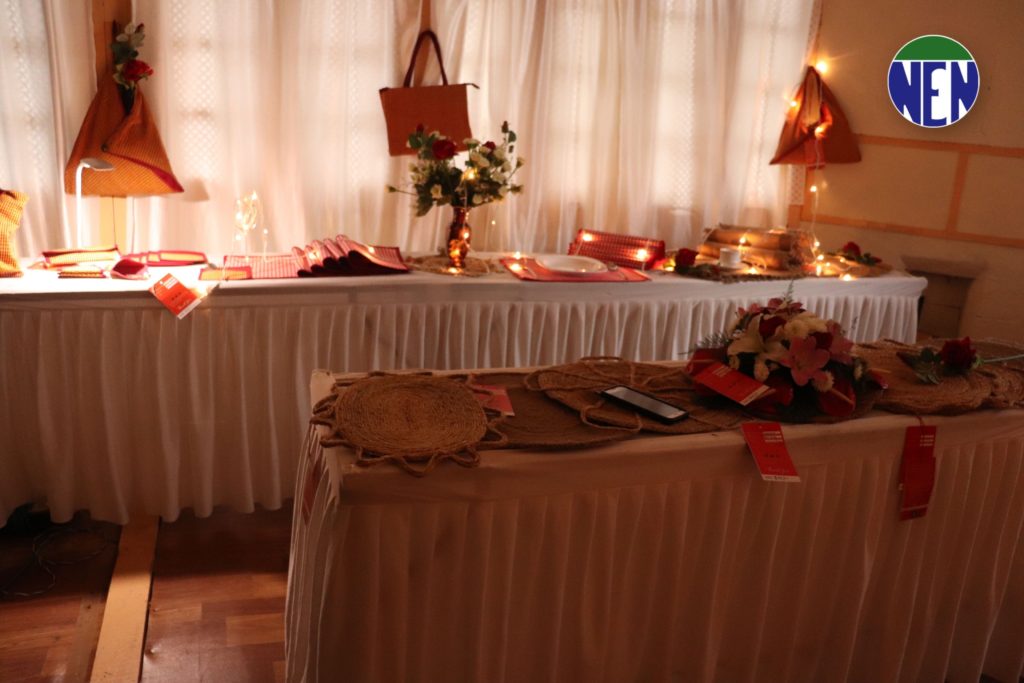In observance of the 16 Days of Activism Against Gender-Based Violence
Ending Gender-based Violence in communities often requires end to end response. In more cases than not women do not report cases of violence and abuse due to the lack of the contingency plan post reporting. Over the years North East Network Meghalaya has frequently come across such fears among marginalized women facing abuse. In course of time, we realized that working women were more likely to recognize and fight domestic and sexual abuse. Livelihood Initiatives thus have a transformational impact on underprivileged women in terms of providing them with support in each other, economic independence and self-confidence.

The Journey of the Meghalaya Women Artisan Initiative had in essence begun in 2016 when NEN Meghalaya initiated door to door interactions with women from the Jhalupara Cantonment Area of Shillong through Suman Rai, our Outreach Worker and point person in the Area. Eventually, when NEN realized that the process of liberating women from violence must include alternative and sustainable livelihood options, Suman introduced us to Neeta Gurung, a women entrepreneur from the area. In our conversation, we understood that Neeta and the group of women that she led were skilled in handicraft but lacked the support to sustain themselves on it. NEN Then decided to support the women’s group to turn their talents into profit.
On 3rd December 2019, the Meghalaya Women Artisans Initiative was launched at North East Network in Shillong through an Exhibition of the first batch of products and a film screening of NEN’s journey with the Artisans of the Initiative.

The Product Launch gave the women artisans a platform to network with many relevant people and made the collective of women and their products public. The Short film encapsulated NEN’s journey with the women artisans of Jhalupara, from its initial stages to now the release of the final products, thus providing them with the recognition and appreciation that they deserve.
The Product Exhibition of the products which was very well received. The women were appreciated for their talent and hard work and found many buyers for their products made out of jute and thohrew stem that attempt to be a blend of tradition and ecologically sensitive material suitable for everyday use. They are a result of months of trainings on standardization and organic modes of production. The dyed jute, for example, was done with turmeric and lac, locally produced and acquired and hand-dyed.
Thus NEN was successful in creating a linkage between the women artisans and a significant group of people that value handcrafted products and traditional design and are conscious of reducing their carbon footprint by switching to alternatives of machine-made non-biodegradable consumer goods. We will continue to support the artisans in such a manner in terms of trainings that would enhance their skills and in providing them with a direct link to the market.










